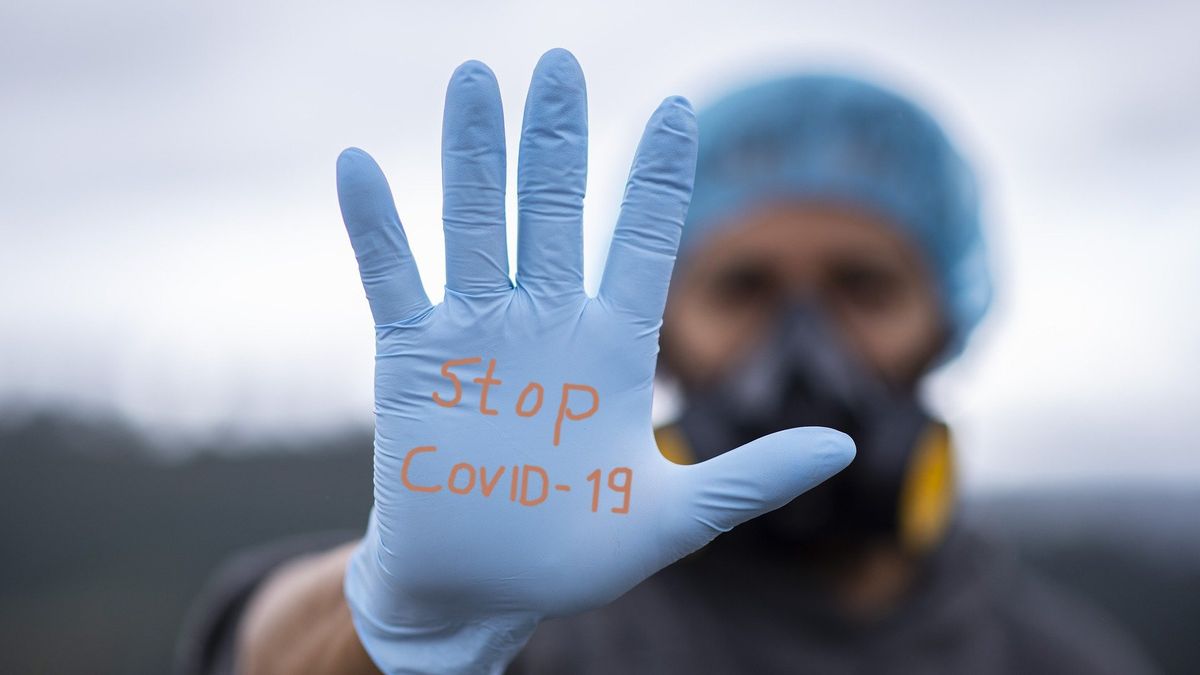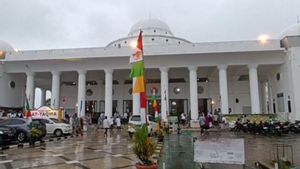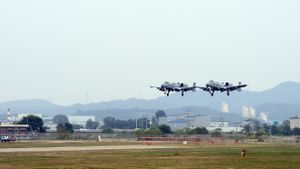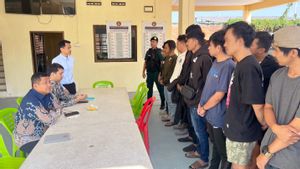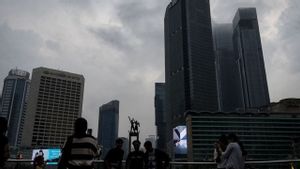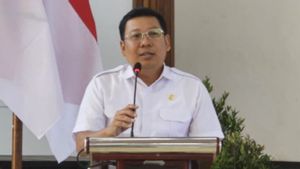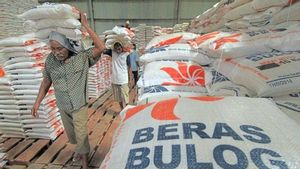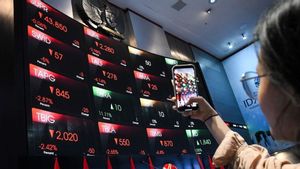JAKARTA - The strategy to control the COVID-19 pandemic that has not been maximized in Indonesia has resulted in the government continuing to formulate a mobility restriction mechanism for its citizens. The government has issued several policies to deal with this pandemic.
The following are the policy terms issued by the government in dealing with COVID-19:
1. PSBBMobility restrictions start with Large-Scale Social Restrictions (PSBB). These restrictions are stipulated in Government Regulation Number 21 of 2020 concerning Large-Scale Social Restrictions in the Context of Accelerating the Handling of Coronavirus Disease 2019 (COVID-19).
To implement the PSBB, each province and district/city must first ask the central government for approval. The central government will consider it with an epidemiological study before approving the implementation of the PSBB in an area.
A month after the emergence of the first COVID-19 case in Indonesia, DKI Jakarta became the first province to implement the PSBB as of April 10, 2020. Followed by West Java, then several other regions.
As a rule, PSBB requires offices to work from home (WFH) except for a number of essential sectors that are still allowed to operate. Learning and worship began to be done at home. All entertainment venues are closed. Dine-in restaurants are prohibited. Then, the transportation capacity is also limited.
2. Transitional/Proportional PSBBAs of June 4, 2020, DKI Jakarta announced that it was carrying out restrictions on mobility with a number of easing. Its name is PSBB Transition.
During the PSBB Transition, offices may return to work from office (WFO), restaurants are allowed to dine-in again. non-essential business places, places of worship, to tourist attractions are reopened. These activities may be reopened with a 50 percent capacity limit.
However, during the PSBB Transition, nightlife venues, spas, massage parlors, karaoke, discotheques were still closed. Schools are also still implementing distance learning.
Unlike DKI, West Java uses the term Proportional PSBB, similar to the Transitional PSBB. Broadly speaking, the loosening rules are the same as those applied in Jakarta.
PSBB policies, Transitional PSBB, more PSBB, Transitional PSBB again, will be implemented in a number of regions until January 10, 2021, following the conditions of COVID-19 cases in their respective regions.
3. PPKMFurthermore, the central government took the helm of handling the pandemic in the regions due to the spike in cases that began to be seen. This is at the same time changing the term PSBB to the Enforcement of Community Activity Restrictions (PPKM).
PPKM was ratified through the instruction of the Minister of Home Affairs Number 01 of 2021 on January 6. PPKM is enforced from 11 January to 8 February. This PPKM is implemented at the district-city level specifically for Java and Bali. The Java-Bali PPKM is led by Coordinating Minister for the Economy Airlangga Hartato.
The rules, 25 percent WFO offices, 100 percent of the essential sector, shopping centers to restaurants (25 percent capacity) are valid until 19.00 WIB. Places of worship to transportation can operate 50 percent. Public facilities and socio-cultural activities are temporarily suspended.
4. Micro PPKMThe government again considers that PPKM at the district/city level has not optimally controlled COVID-19 cases. Then, the mobility restriction was replaced with the implementation of the Micro PPKM which took effect on February 9, 2021. Micro PPKM was initiated in Java and Bali through the Instruction of the Minister of Home Affairs Number 3 of 2021.
The regions that will implement the micro PPKM are the regions that have applied the previous PPKM. The difference with PPKM, Micro PPKM is more focused on controlling at the community level, namely RT-RW. There are various control criteria depending on the zone, ranging from green, yellow, orange, to red.
Indeed, there are still restrictions on activities such as PPKM, but when the Micro PPKM is more relaxed. During the Micro PPKM, WFO was relaxed to 50 percent, dine-in in restaurants was relaxed by 50 percent. Malls and restaurants can operate until 21.00 WIB.
5. Tightening of Micro PPKMGradually, the Micro PPKM finally took effect in all provinces until June 21, 2021. At that time, the COVID-19 condition was increasing, even reaching more than 50 thousand cases per day. Therefore, the government implemented the Micro PPKM Tightening which was effective from June 22 to July 5.
Through the Instruction of the Minister of Home Affairs Number 14 of 2021, there are differences in the implementation of eating/drinking activities in public places (restaurants, restaurants, cafes, street vendors, hawker stalls) in separate locations and shopping centers/malls in the Micro PPKM tightening.
For, eating and drinking activities in places where the capacity is set at 25 percent of the normal capacity. Then, operating hours are limited to 20.00 local time.
Implementation of activities in shopping centers, malls, trade centers, operating hours are limited to 20.00 local time, and limiting visitor capacity by 25 percent with the implementation of more stringent health protocols.
Meanwhile, the rules regarding working from home are still the same as the previous instructions. Regions with red zones are asked to implement work from home (WFH) or work from home by 75 percent which is regulated in turns, and WFO by 25 percent. For areas other than the red zone, restrictions are carried out by applying 50 percent WFH and 50 percent WFO or working in an office.
6. Emergency PPKMThe government has again changed the term for handling the pandemic to PPKM Emergency Java-Bali and several other areas. Emergency PPKM is implemented based on Inmendagri Number 15 of 2021 and comes into effect on 12 July. Meanwhile, outside Java and Bali are still implementing Micro PPKM.
During Emergency PPKM, all teaching and learning is done online and face-to-face school trials are stopped. Business activities in the essential sector may operate at 50 percent, critical 100 percent and beyond that, WFH is required.
Then, restaurants and snack stalls are not allowed to dine in. Shopping activities except pharmacies and drug stores are closed. Supermarkets and the like that sell daily necessities operate at a maximum of 20.00. Places of worship and public facilities are closed.
7. PPKM Level 4Most recently, the government has again changed the term for handling the pandemic with the names PPKM Level 4 and PPKM Level 3. This is stated in the Minister of Home Affairs Instruction Number 22 of 2021 concerning PPKM Level 4 COVID-19 in the Java and Bali Regions.
The Inmendagri is a regulation regarding the extension of the Emergency PPKM until July 25 which was announced yesterday by President Joko Widodo. However, the term PPKM Emergency was changed to PPKM Level 4. In general, the rules for implementing and monitoring mobility restrictions in PPKM Level 4 are the same as for PPKM Emergency.
Thus, there are already 7 terms used by the government in implementing policies to limit community activities, ranging from PSBB, Transitional/Proportional PSBB, PPKM, Micro PPKM, tightening of Micro PPKM, Emergency PPKM, to PPKM Level 4.
The English, Chinese, Japanese, Arabic, and French versions are automatically generated by the AI. So there may still be inaccuracies in translating, please always see Indonesian as our main language. (system supported by DigitalSiber.id)
